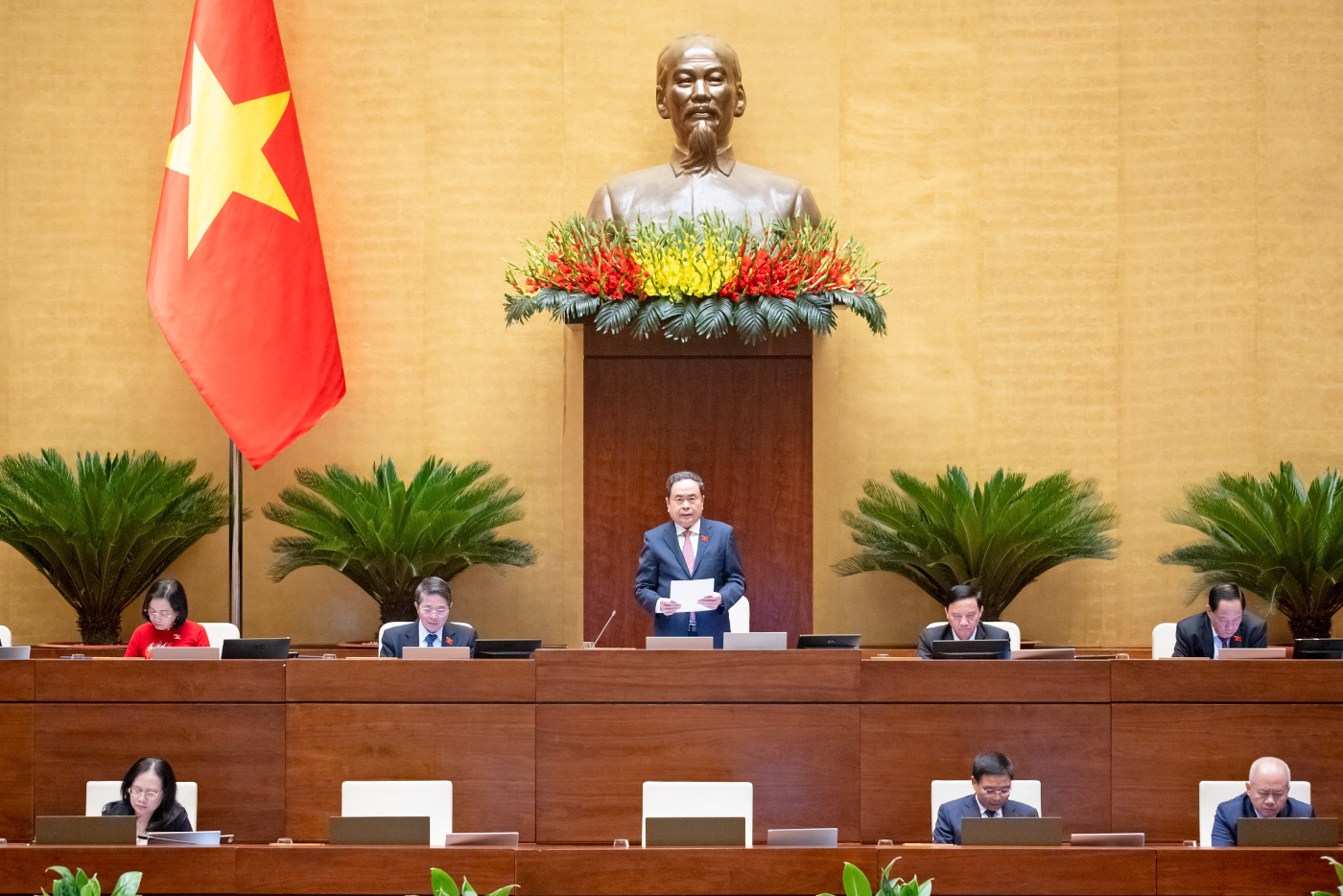NA Chairman pushes for faster public investment, economic reforms
The Chairman stressed the need for stricter fiscal discipline, faster digital transformation, and more efficient management of State budget revenues and expenditures.

Hanoi (VNA) – National Assembly Chairman Tran Thanh Man has urged accelerating public investment disbursement, simplifying administrative procedures to boost production and trade, and stepping up the decentralisation and delegation of authority for better efficiency.
Speaking at the closing of a Q&A session on financial issues in Hanoi on June 19 as part of the 15th NA’s ongoing 9th session, Chairman Man praised the pointed and concise questions raised.
Man commended the Ministry of Finance (MoF) for its key role in maintaining macroeconomic stability, curbing inflation, increasing budget revenues, and ensuring major economic balances.
The Chairman stressed the need for stricter fiscal discipline, faster digital transformation, and more efficient management of State budget revenues and expenditures. He also urged adequate funding to realise the Politburo’s Resolutions on science and technology, innovation, law building, organisational restructuring, and tuition waivers and reductions, in line with set timelines.
The top legislator called for stronger oversight of corporate governance, restructuring of financial assets, and streamlining operations and personnel to cut costs and enhance labour productivity. Investment, he noted, should be focused on strategic sectors with sustainable, high-impact potential.
A focus should also be placed on the realisation of the Resolution on the development of the private sector and another on special mechanisms and policies for private economic growth, he said, asking for the revision of the Law on Support for Small and Medium-Sized Enterprises, and the building of a legal framework for individual business activities. This includes encouraging business households to transition into formal enterprises and providing clear guidance on phasing out their fixed-tax regime.
Man highlighted the urgency of clearing hurdles to fast-track major foreign direct investment (FDI) projects, particularly in high-tech sectors with strong value-added, technology transfer, and local business linkages. He warned that FDI ventures causing environmental damage, misusing land, or affecting commitments would face strict penalties. He also advocated for updated regulations to develop eco-industrial parks and coastal economic zones.
Earlier, Deputy Prime Minister Ho Duc Phoc responded to concerns about slow public investment disbursement, which, he said, drags on growth and job creation. He pinned delays on inadequate preparations, prolonged land clearance and compensation, lengthy project approval, and shortages of construction materials like stone. The Government, he said, would direct local authorities and ministries to tackle these issues, making public investment a key driver of national growth.
On taxation, he defended the view on phasing out the fixed-tax regime for business households as consistent with private sector development goals but tasked the MoF with studying tailored tax mechanisms for low-income and small-scale businesses to balance welfare and operational needs.
He noted that Vietnam’s tax rates remain competitive, with a 10% value-added tax (down to 8% for some goods and services) versus 17%-27% globally, and a 20% corporate income tax compared to 20%-35% across Asia./.
